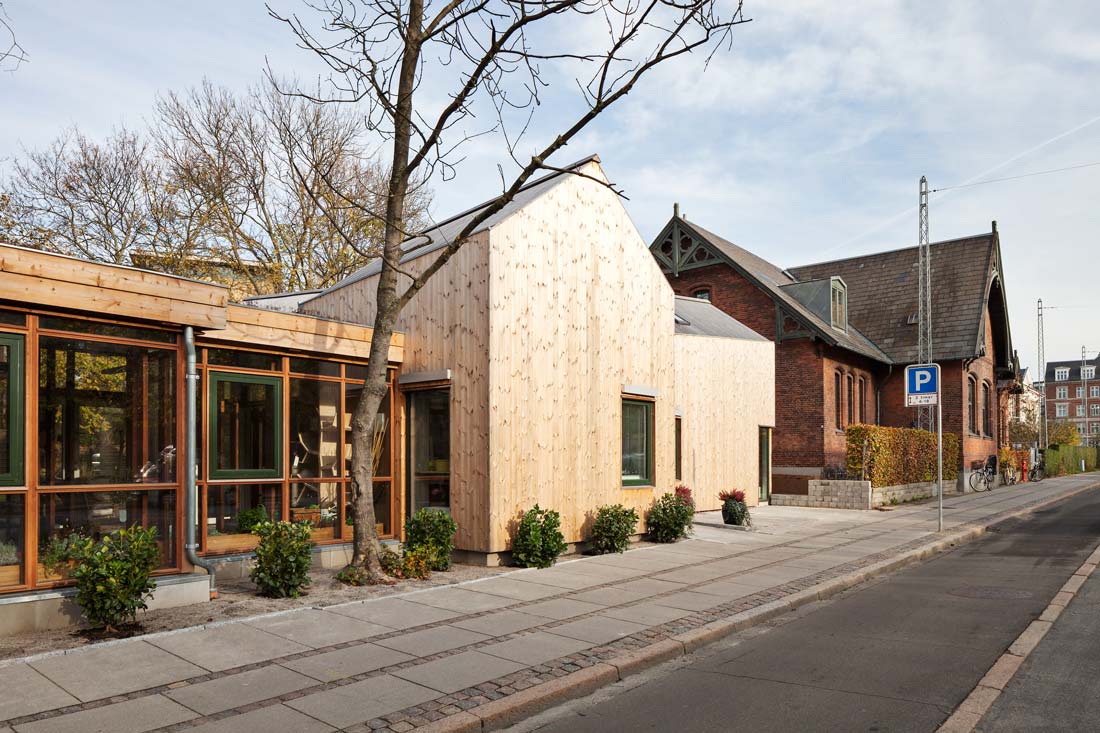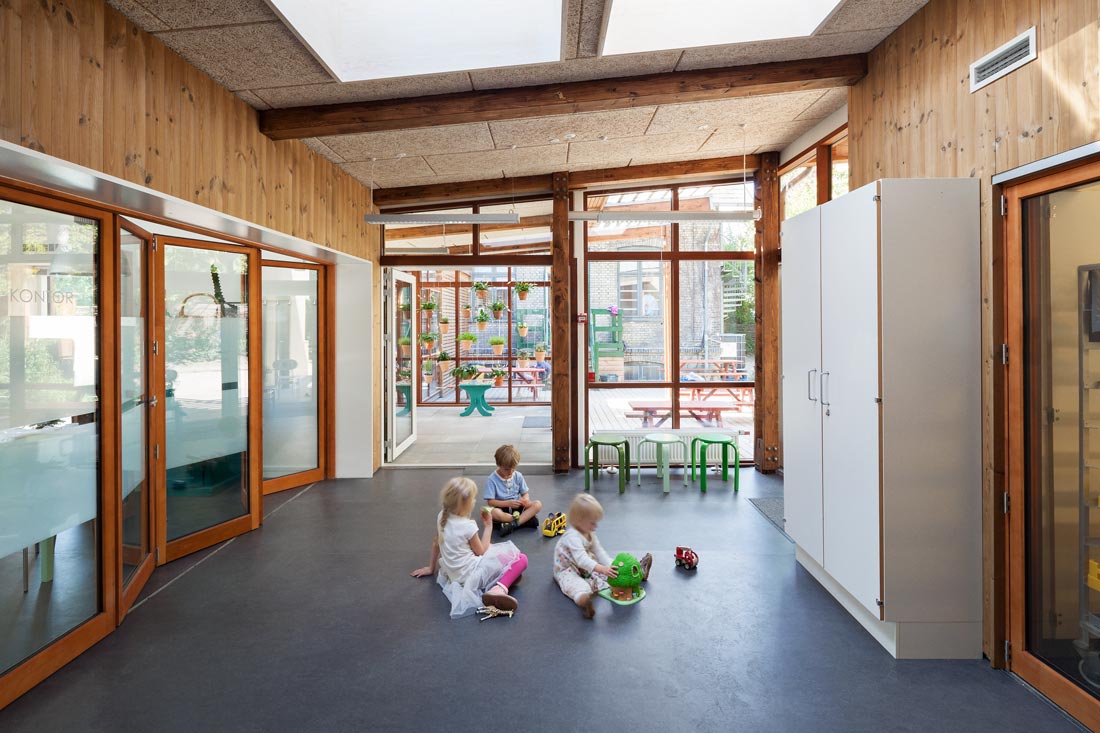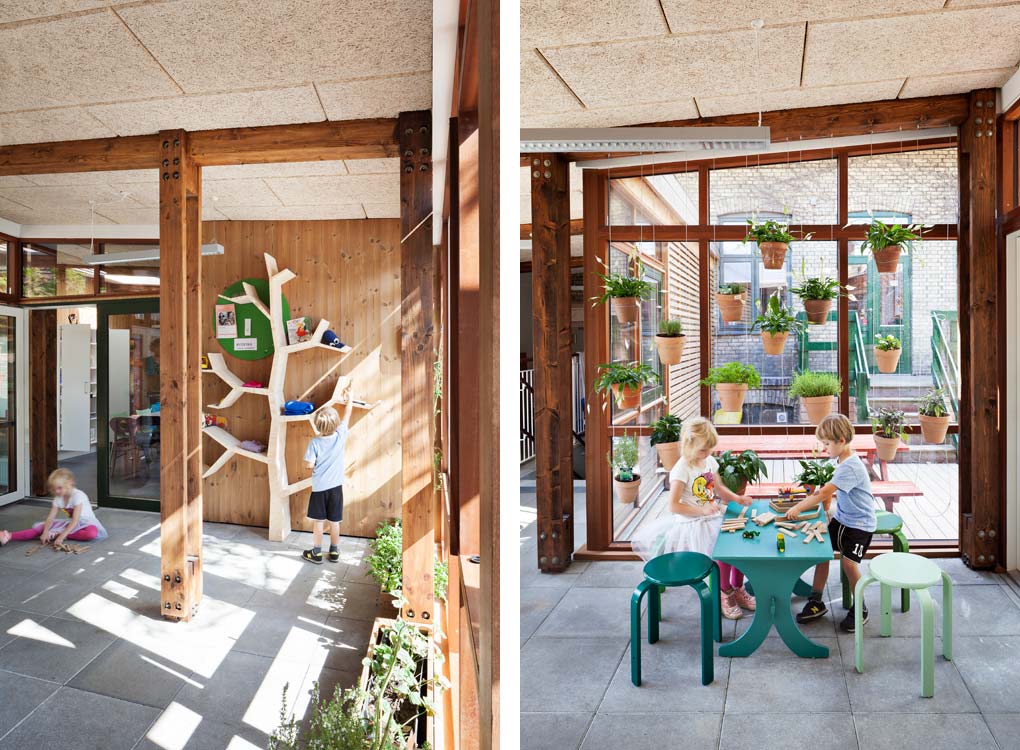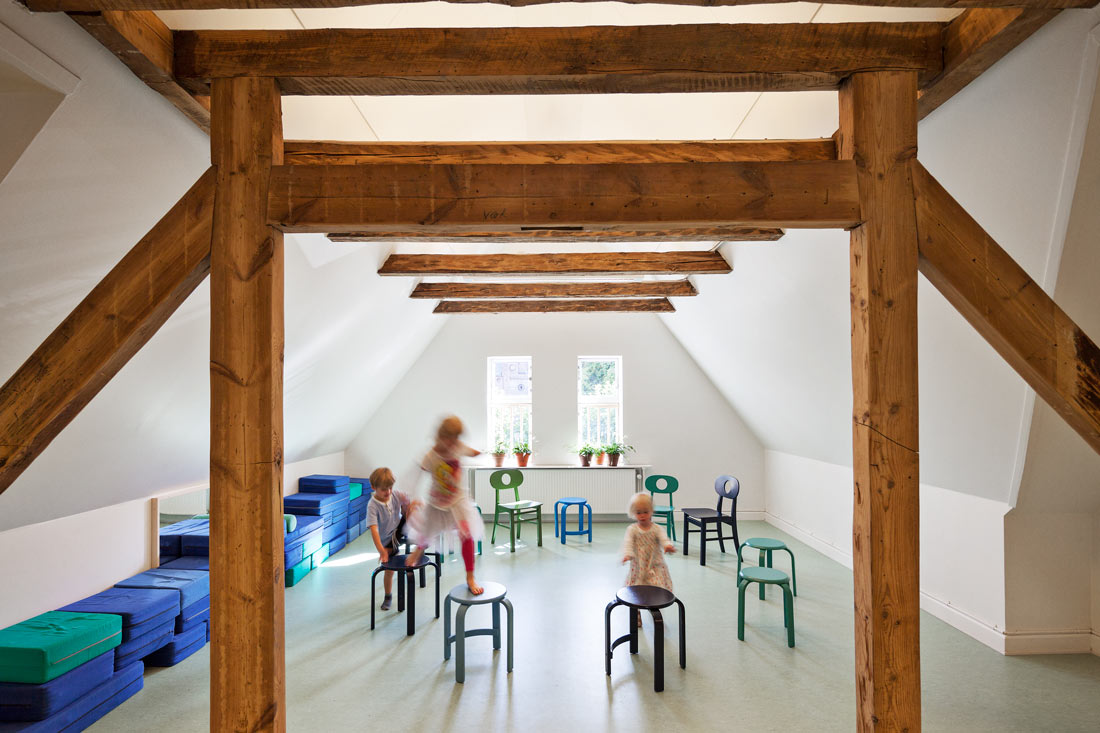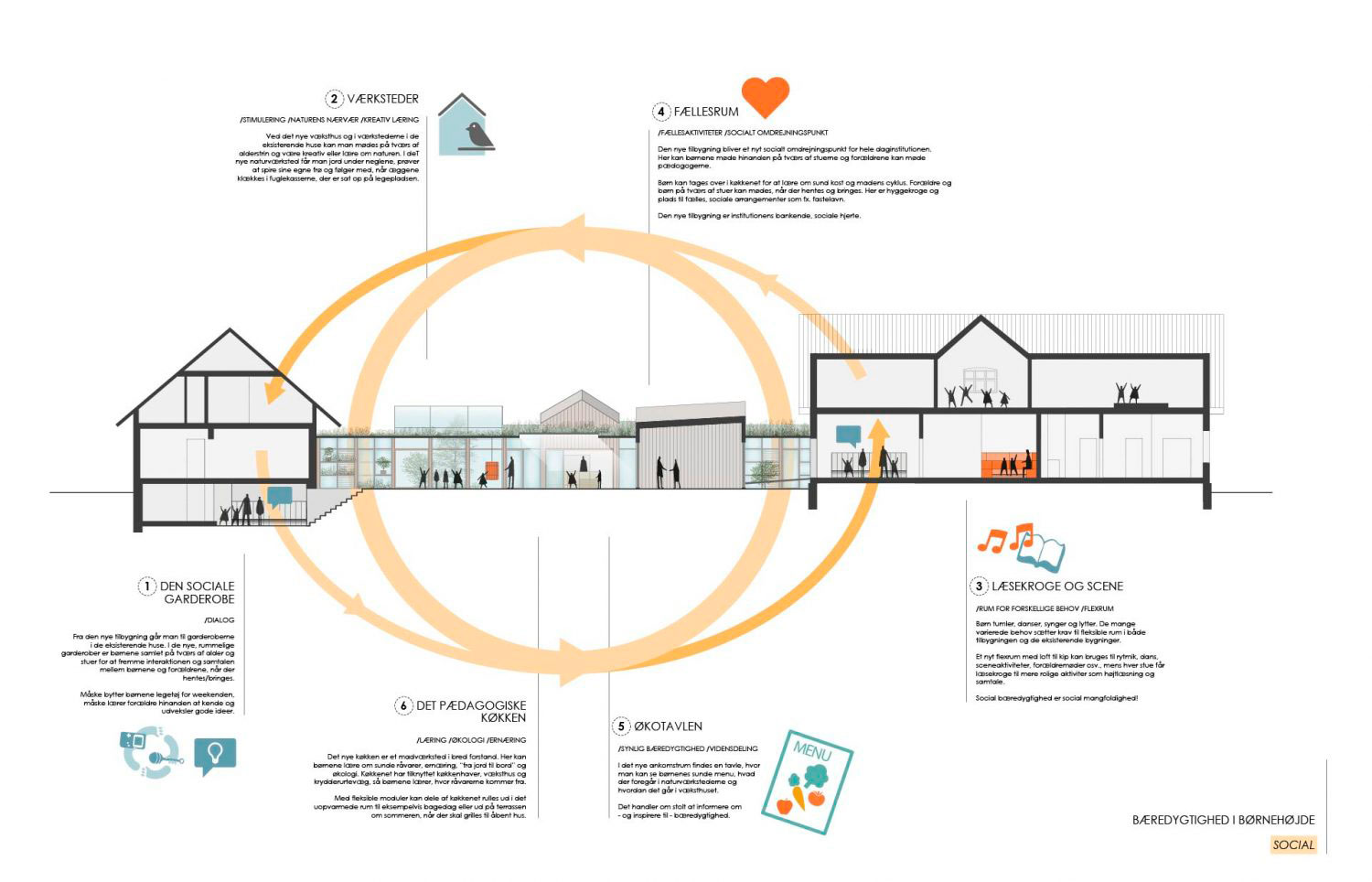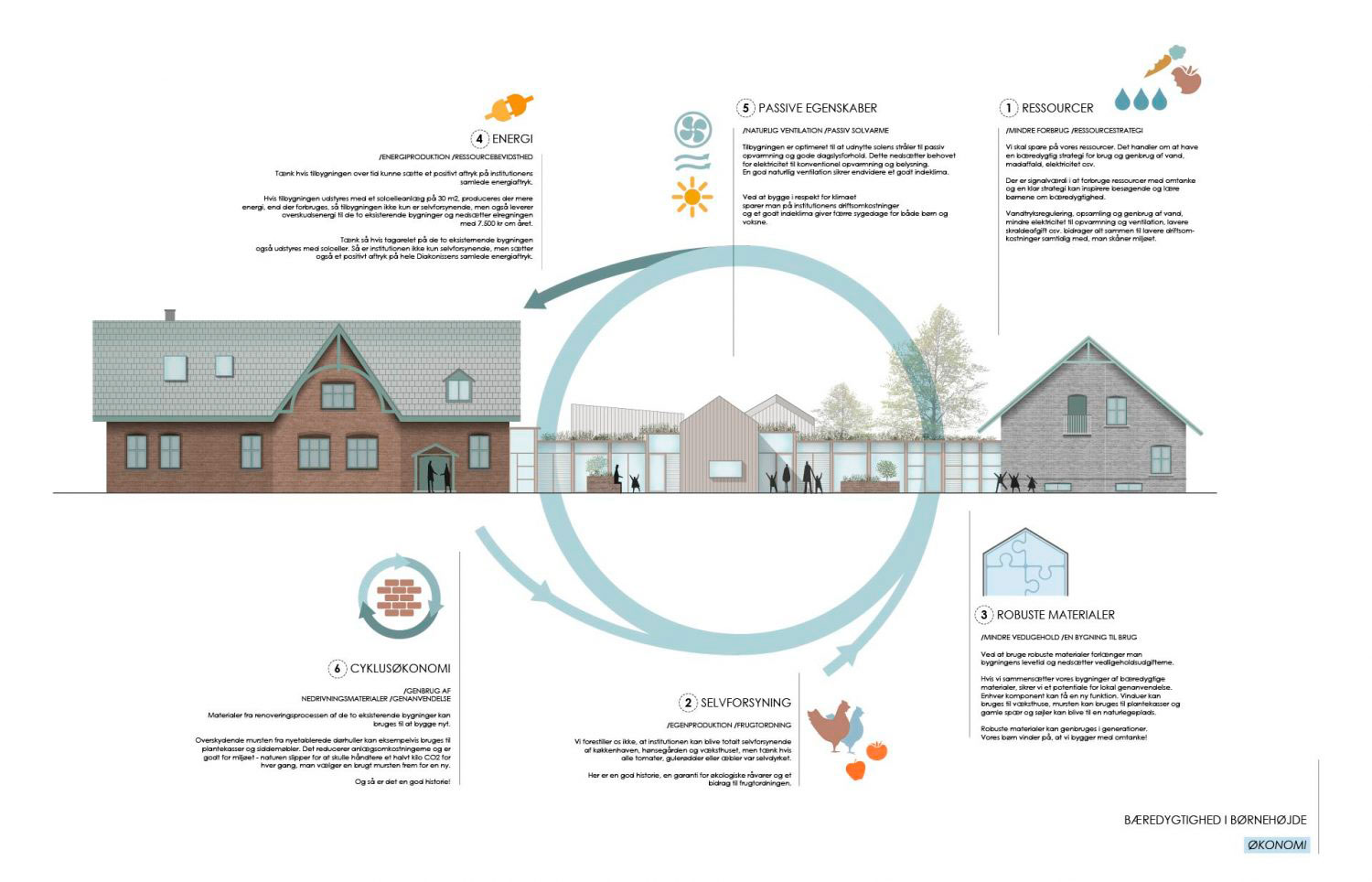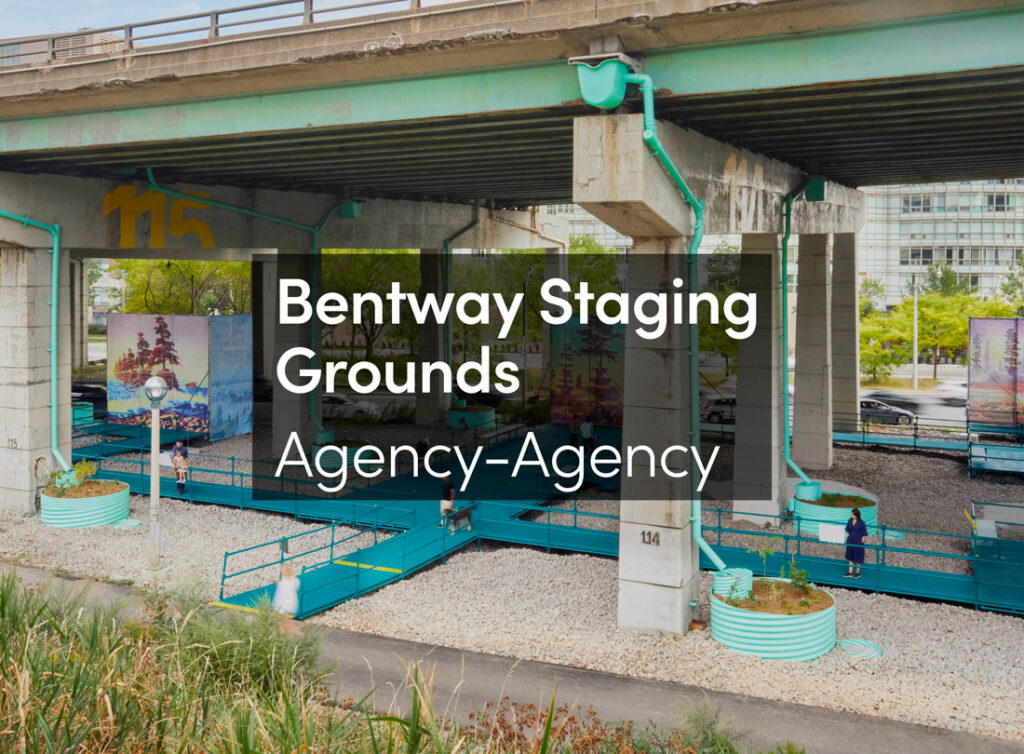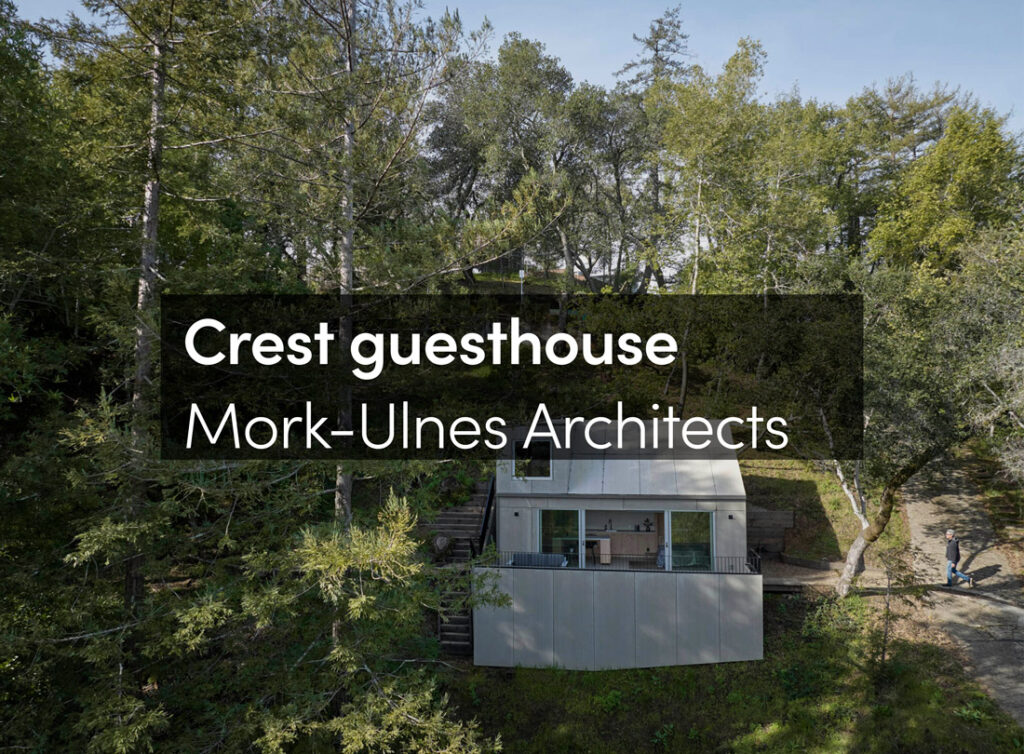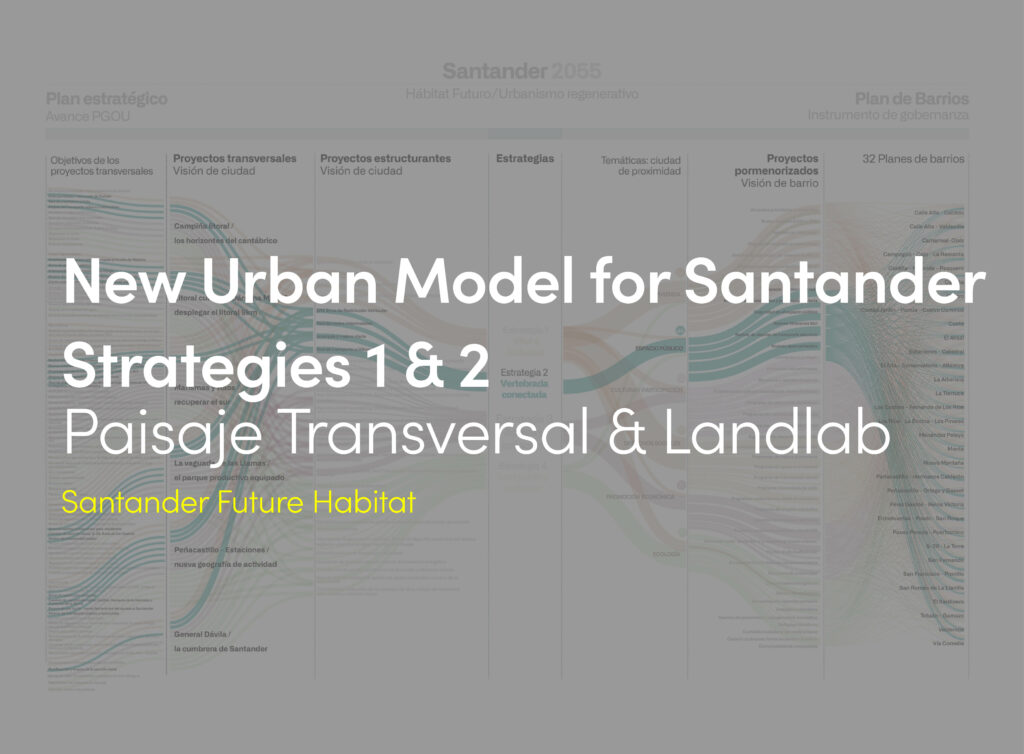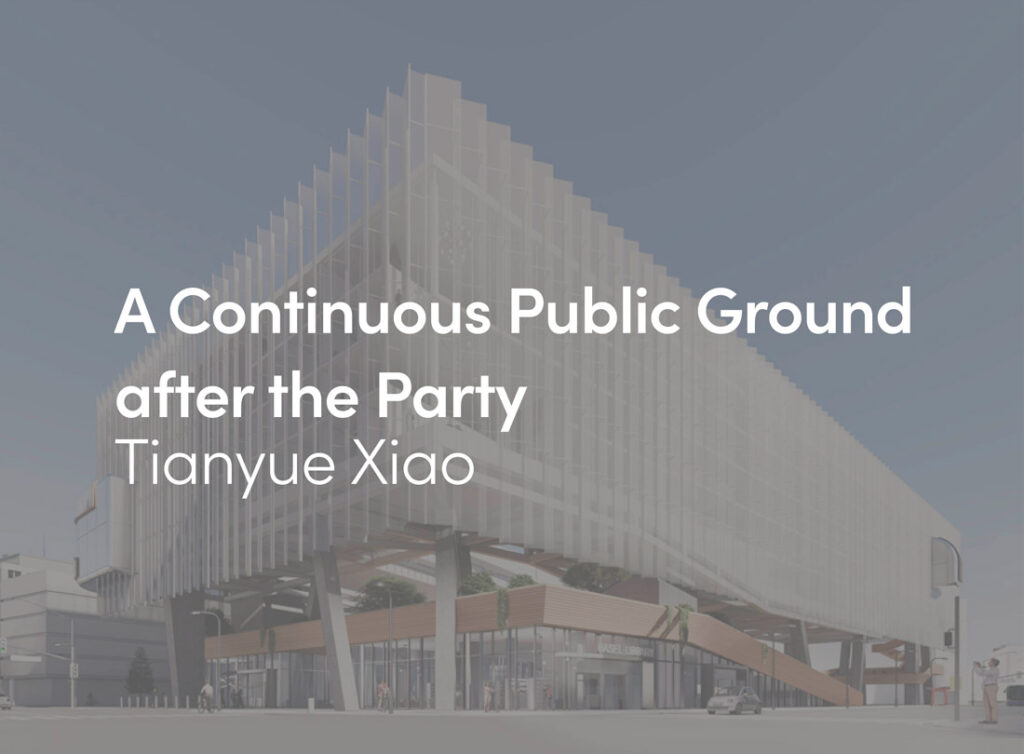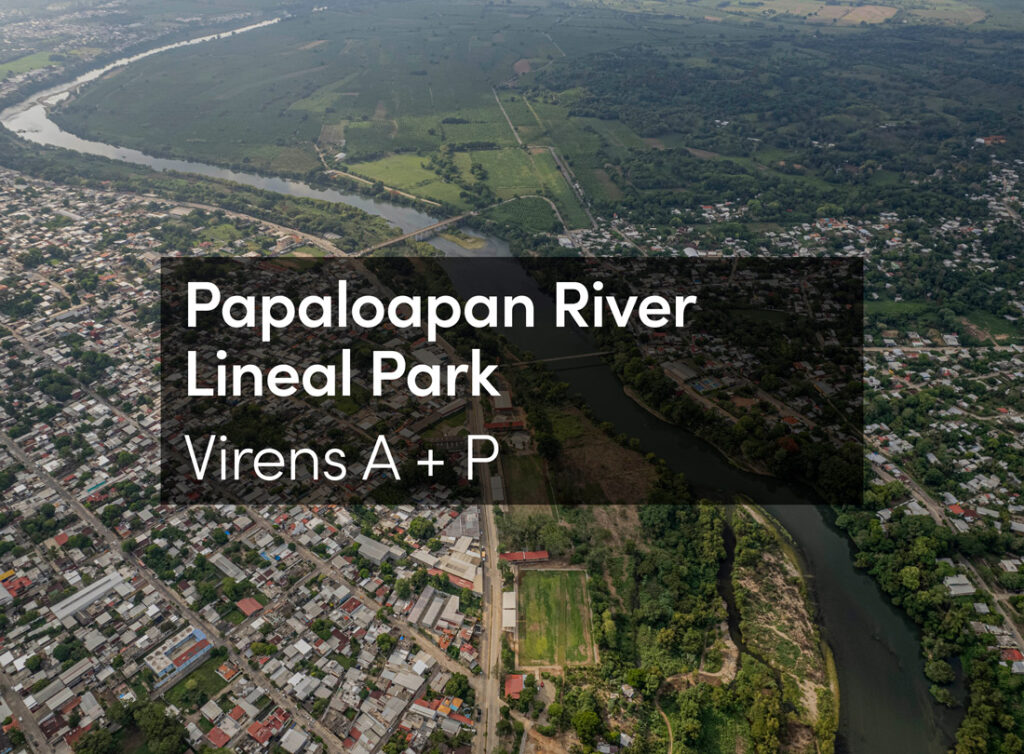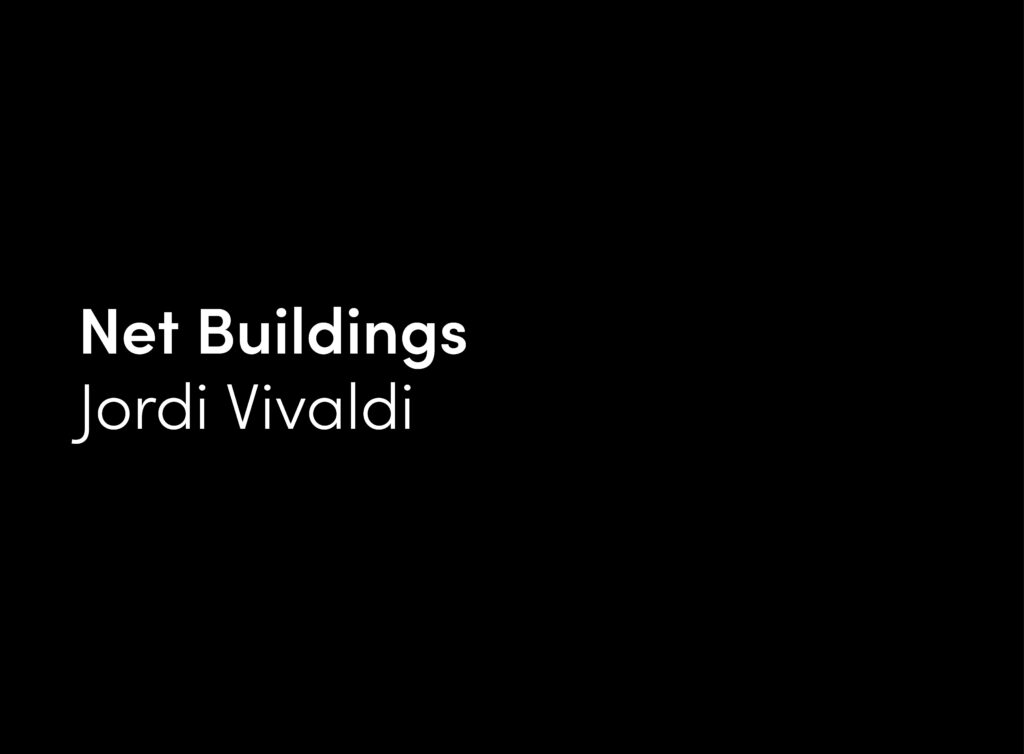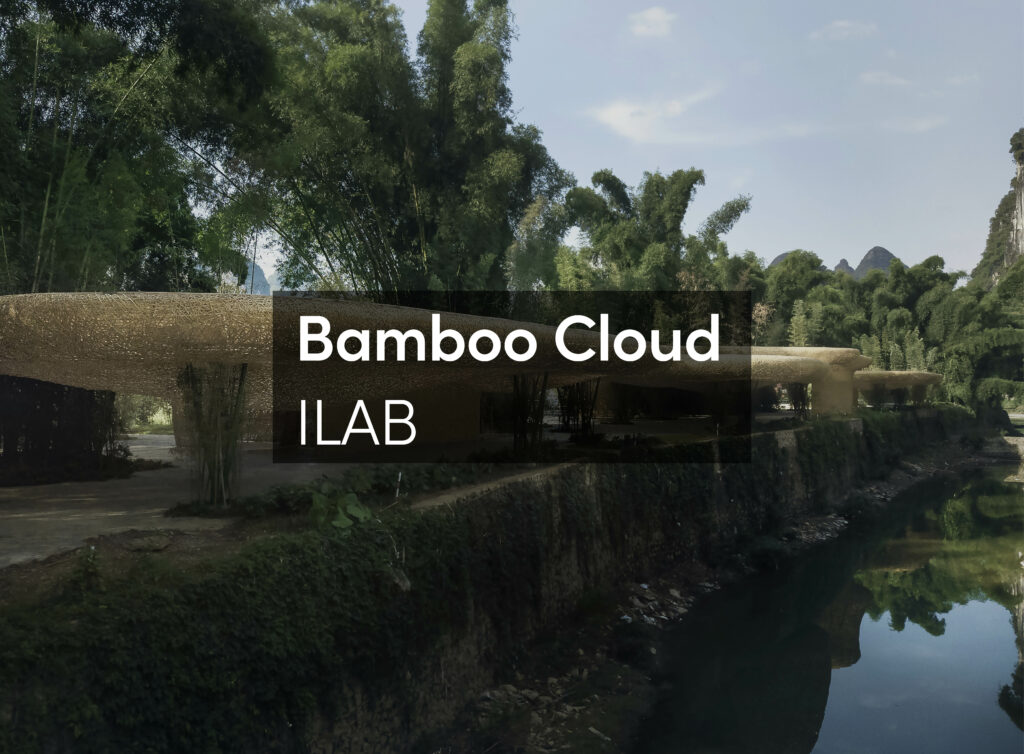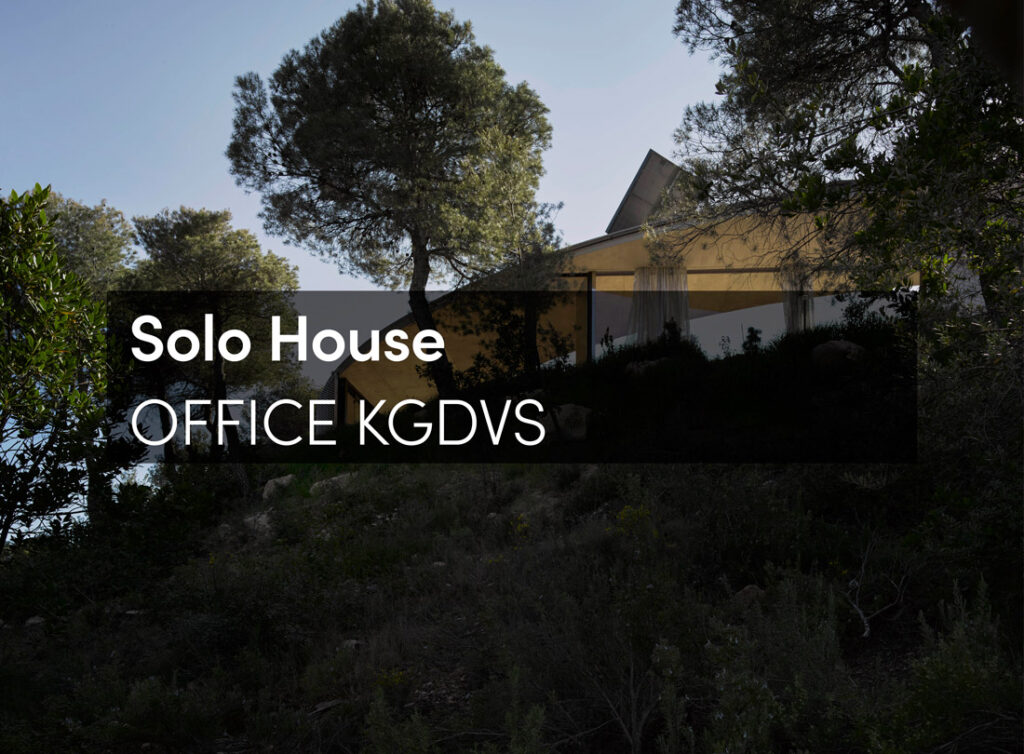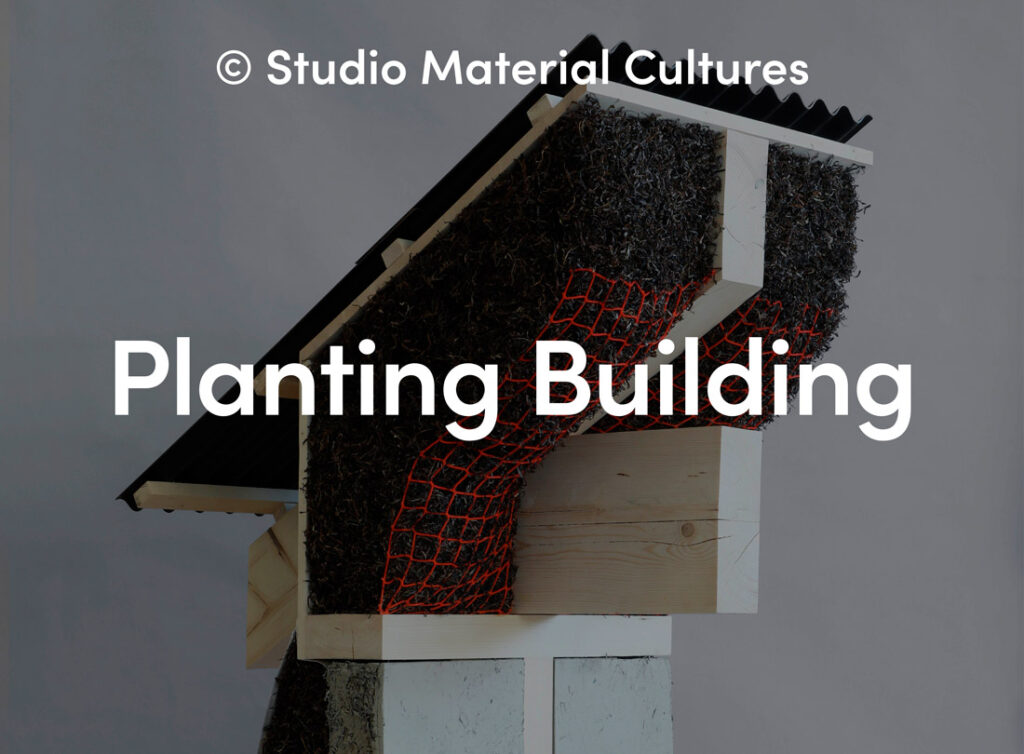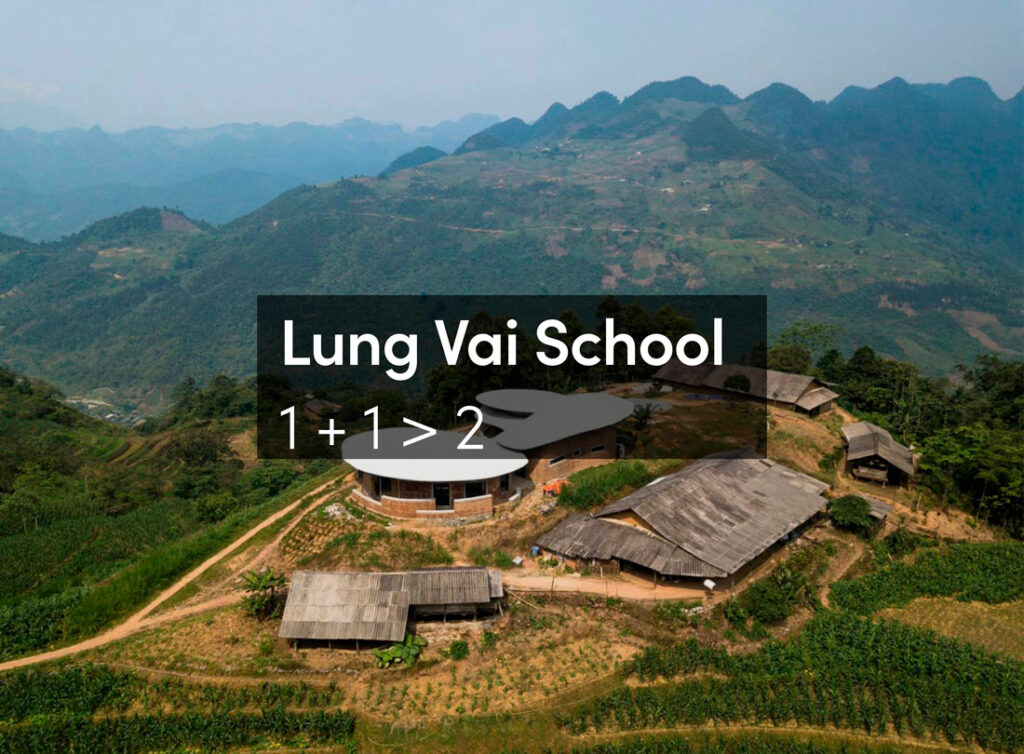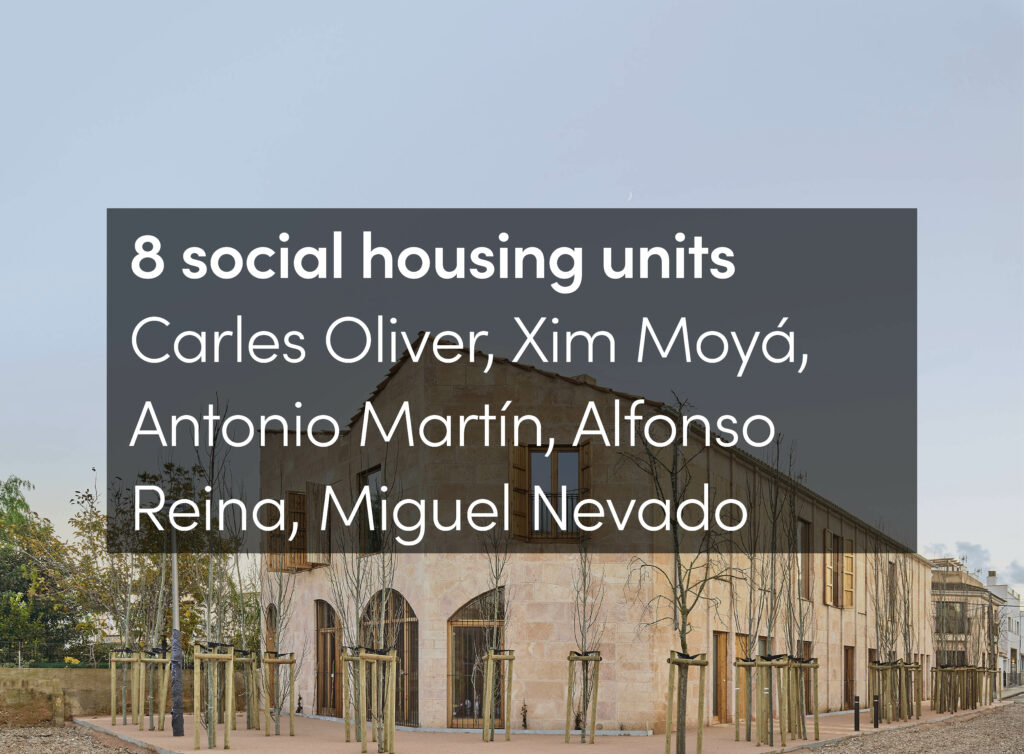Marthagården is one of Denmark’s most sustainable kindergartens! The kindergarten is an addition to and renovation of the Danish Deaconess Foundation’s kindergarten in Frederiksberg, Copenhagen. The integrated kindergarten and crèche produces energy, grows organic food, recycles water and food waste, and sorts waste.
The kindergarten is built from healthy and environmentally sound materials and creates the architectural surroundings for spacious everyday living, where many experiences and practical tasks take place. The fact that Marthagården is a project for children has been very crucial to our working process on the project, and “sustainability for children” has therefore been its main focus.
Context
Marthagården used to consist of two older buildings which, despite their status as one institution, practically functioned as two separate units. The project is comprised of a renovation of the old buildings as well as an extension.
A survey showed that 75% of the parents transport their children by bike, making it meaningful to open up to the green bicycle route that runs along the playground.
A new main entrance facing the green area gives the users good facilities for arriving by bike, with plenty of space for parking – even for large cargo bikes, which have become increasingly popular.
In conjunction with the new arrival areas, the new heart of the institution is created. The common entrance creates a space for social meetings between parents, children, teachers, kitchen personnel, etc.
In the middle of the institution’s new heart is Marthagården’s new focal point: ‘The Healthy Kitchen’. From here, a range of sustainable initiatives and games originate and spread throughout the buildings. The organic kitchen sorts waste, grows fruit and vegetables, composts and uses eggs from hens raised on site.
By reusing the existing buildings and the space in between, a new and distinctive architecture appears – with small houses, new spaces, new places for rest in the sun, shade and shelter.
Between the new functions, a flexible dry-foot connection is established which acts as a buffer zone between the houses. The new connection creates new spatial opportunities which prolong the warm months.
Concept
From a social standpoint, ‘Sustainability for children’ is about creating an institution with many social meeting places and a high level of flexibility. A social kindergarten is a place where many experiences and activities shape the schedule of the day for the children at Marthagården. The kindergarten will thereby be able to activate and engage children, parents and staff daily through the disposition of the architecture.
10 POINTS FOR MARTHAGÅRDEN:
1/ To be, to live and to learn are guiding principles.
2/ To create a healthy indoor climate through the use of natural materials and by harnessing passive properties such as sun, wind, water and greenery.
3/ To create the basis for happy children and adults through a healthy food culture.
4/ To create an organic children’s community with stimulation for all five senses.
5/ To create a diverse Marthagårde through social sustainability for children, starting with ‘one institution, one entrance, one identity’.
6/ To work with spatial recycling and rational value creation in the existing buildings.
7/ To use the passing of seasons to change the usage patterns of the buildings.
8/ To make it easy to choose to arrive by bike.
9/ To reduce the energy consumption of the building so that it creates more energy than it uses.
10/ To create a children’s town in the town, on a scale that creates possibilities for exploration, activities and flexibility.
Sustainability
Sustainability for children is about planting the seeds for a sustainable and healthy lifestyle already at an early age. Through actions that appeal to the senses, the concepts are brought down to a level where they can be seen, felt, heard, tasted and smelled – on a level that the children can grasp. In this way, many of the new functions work with sustainable cycles and processes that can be sensed.
“THE KITCHEN OF LEARNING”
We create large amounts of organic waste that can be composted. With a compost system, it is possible to transform waste into a rich source of nutrition for growing new plants. At the same time it saves the environment from a lot of waste, since it does not have to be picked up for disposal any more.
Apart from learning about food waste, the composting system teaches the children about the food cycle. In the kitchen of learning, children can join in doing gardening, cooking or taking care of the chickens. This gives them an understanding of nature, and they see that eggs do not come from a factory, and that vegetables do not magically appear in the supermarket.
”THE ECO-BOARD”
In the new arrival space there is a board where you can see the healthy menu for the children, what is happening in the nature workshops, and how things are going in the greenhouse. It is all about proudly informing people and inspiring them to engage in a more sustainable way of living.
